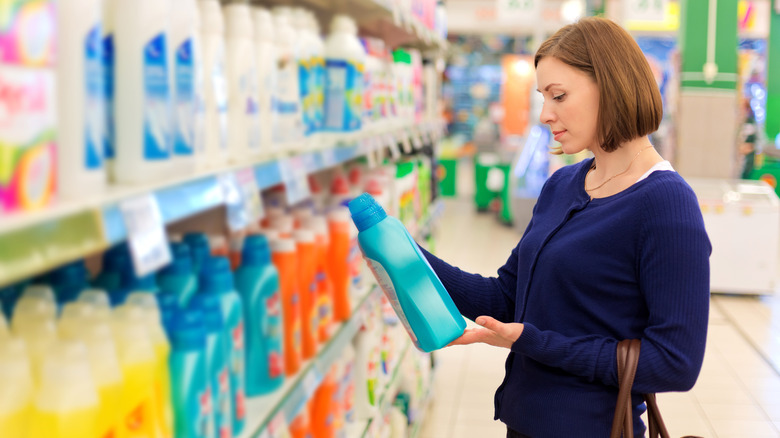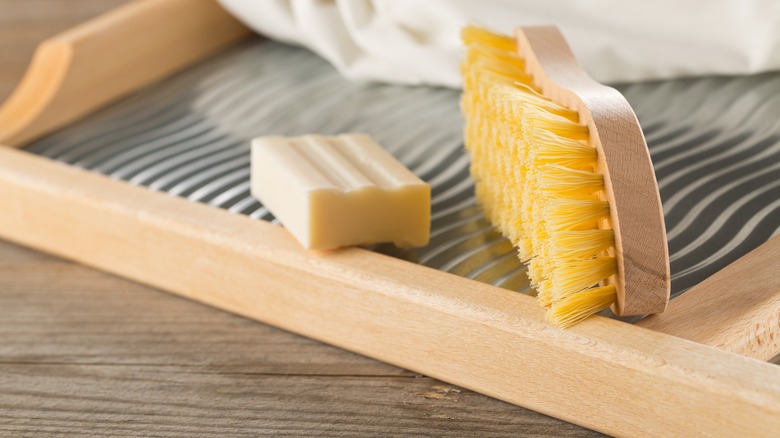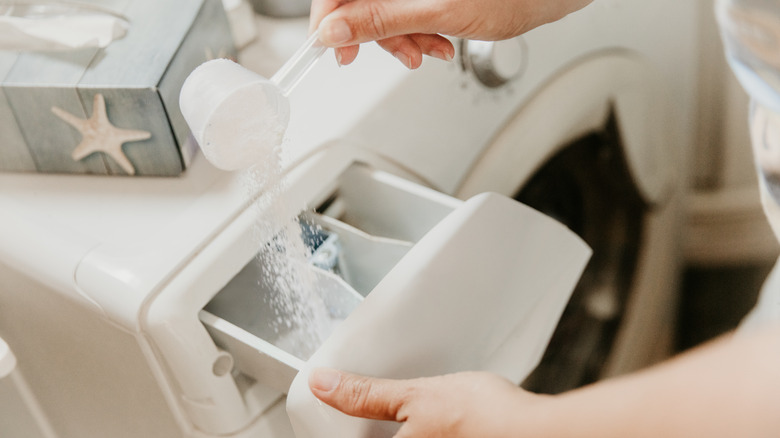Laundry Soap And Laundry Detergent: Which Will Get Your Clothes The Cleanest?
While picking a washing cleaning agent off the aisles, you've probably grappled with the golden question: laundry soap or laundry detergent? When family traditions and costs aren't at play, it isn't unusual to wonder which offers the biggest cleaning bang for the buck. And to no one's surprise, they both hold their own, provided the conditions are right. They're excellent at cleaning your clothes, but whether they will be the star of your laundry day depends on stain stubbornness, water hardness, washing temperature, and ease of rinsing.
For instance, laundry soaps are natural bar or liquid cleaners that zap gentler stains with ease, provided the water is warm and soft. In contrast, laundry detergents are soil-removal powerhouses that perform well under all circumstances, regardless of the water's temperature and hardness. While this makes them a better cleaner, unlike soaps, they may leave behind an oil-based grime layer during rinsing, leaving the clothes not quite as clean as you would like.
Use laundry soaps for gentle cleaning
Despite their simple constitution — a mix of vegetable oils, animal fat, and lye — laundry soaps are effective laundry cleaners whose surfactant molecules naturally interact with oil and grime to eliminate them. Their natural makeup supports soft action, making them the right buy for cleaning delicate clothes, such as those made of silk and cashmere. Moreover, their non-synthetic buildup is unlikely to cause any allergies, making them a great choice for the sensitive populace. And if you struggle with common laundry mistakes, such as overusing the laundry cleaner, soaps are your savior as they rinse out fully.
While performing well in clearing simple stains, laundry soaps aren't as strong in removing grease stains and other stubborn blots. While they prefer warm-to-hot water to showcase their best performance, they may leave behind soap suds on your clothes as the product fails to mix with cool water. Additionally, they might not be a good option if the water is hard, as soaps react with the water's mineral deposits, like lime, to create soap scum, dampening the cleaning action. But you don't need to worry about it if the soap contains biological enzymes.
Use detergents for well-rounded benefits
On the other hand, laundry detergents — a WWI ideation over insufficient supplies — are synthetic derivatives that meticulously eradicate the toughest of stains. Comprising hard chemicals and enzymes that easily disintegrate oil molecules, dust, and blood stains, they also sometimes include bleach, lending your clothes a brightening effect. Being formulated in labs, laundry detergents are chemically fit to perform well in both hard and soft water. Moreover, their efficacy is unaffected by any temperature changes, making them the ideal blind buy if you don't want to get into any cleaning specifics — even more so if you own a high-efficiency washing machine.
However, despite giving off the appearance of a cleaner look, detergents may play spoilsport in the rinsing department due to their fragrances. As the cleaning product must be oil-based for the scent to cling to your clothes, it inversely holds on to a very thin layer of soot and dirt, lowering its washing impact. Further, they aren't biodegradable like detergent soaps are and adversely affect the environment. So, they might not be for you if you care about making eco-friendly choices.


